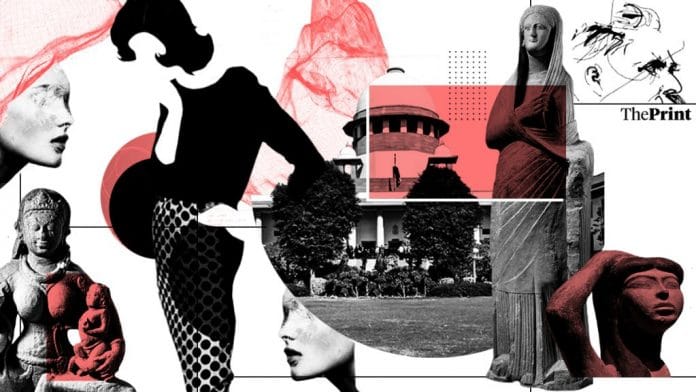New Delhi: Activists have accused the Modi government of refusing to acknowledge that Female Genital Mutilation (FGM) is practiced in India, thus making it “invisible in the country”.
They were speaking Saturday (6 Feburary), which is marked internationally as Zero Tolerance to Female Genital Mutilation Day.
Girls who undergo FGM are at the receiving end of severe pain, excessive bleeding, and have difficulty passing urine. It can also lead to tetanus and genital sores and has severe psychological repercussions such as sexual disorders, fear of sexual intimacy, nightmares and post traumatic stress disorder.
‘Govt taking no action’
Female genital mutilation, called Khatna or Khafz in India, is practiced mainly in the Bohra Muslim community, a subsect of Shia Muslims.
Speaking to ThePrint, Masooma Ranalvi, founder of the anti-FGM advocacy group WeSpeakOut, said testimonies of women who had undergone the procedure had been sent to the Women and Child Development (WCD) ministry.
“75 per cent of women in our communities are being cut to date,” she said. “While testimonies and reports have been submitted to the Ministry of Women and Child Development as well as the National Commission of Women, no action has been taken.”
In 2017, then WCD Minister Maneka Gandhi said that FGM practised by the Dawoodi Bohra commuity was a criminal offence and if the community does not stop it then the government will bring in a law to ban the practice.
“However, almost four years since then no action has been taken,” Ranalvi said.
Ranalvi explained that the issue had also been raised in Parliament twice but the answer had been the same. “There has to be a system of accountability,” she said, adding that between religious leaders of the community who asserted that the practice has to stay and the government saying it does not exist, “women’s voices were being scuttled”.
Also read: Mumbai’s Bhendi Bazaar makeover hits phase 1 milestone in Covid year, 2 towers up & running
Modi govt flip-flop on the issue
Though India is part of a UN resolution to eradicate FGM by 2030, the country in itself has not taken a firm stance on the issue.
The Modi government had in 2018 also been accused of changing its stance, from calling for a ban to supporting organisations that want FGM to continue, after the Prime Minister met with the spiritual head of the Dawoodi Bohra community, Syedna Mufaddal Saifuddin.
Wasim Memon, co-founder of the NGO Drive Without Borders told ThePrint that he made a representation to the then Women and Child Development Minister Maneka Gandhi in 2017 on the need to stop the practice.
Memon said that he received a call from Gandhi in 2017 to discuss the matter in Delhi and that he was told plans were being made to ban FG. He, however, added that the under secretary was changed and then he never made it to Delhi.
Memon explained that he dropped the matter as by that time a Public Interest Litigation (PIL) had already been filed in the Supreme Court. “In India, it is easier to challenge an existing law than ask for a new law to be implemented,” he said.
Memon further explained that in other countries including the Sub-Saharan ones where FGM is practiced there are laws to ban it while India is among the few countries to not have a law specifically against FGM. “The community that practices FGM in India, I do not want to take the name, is also a very influential community,” he said.
In the court
In May 2017, a PIL was filed in the Supreme Court seeking a ban on FGM. A year later in 2018, the matter was heard partially by a five-judge bench but in most recent developments, it has now been referred to a nine-judge bench headed by Chief Justice of India S.A. Bobde.
The matter, however, has been clubbed with other cases such as entry of Muslim women in mosques, Parsi women marrying outside the community and the Sabarimala issue. The court clarified that it would hear the case as part of broader questions and would not hear specific cases.
Also read: Sudan criminalises female genital mutilation, allows non-Muslims to drink alcohol







Another problem is being foisted on India to badmouth it. These so-called activists are a menace. If the government makes declaring FGM as an criminal offence, same activists will howl that the religious rights of the minorities is being violated by the Hindu supremacist government! Damned if you do, damned if you don’t